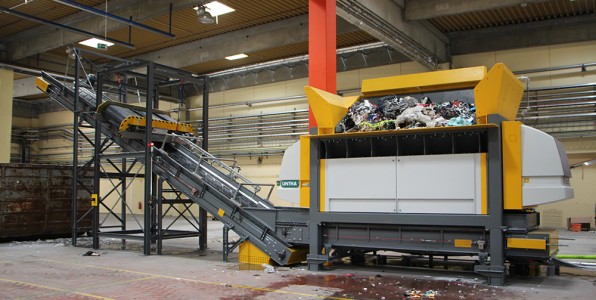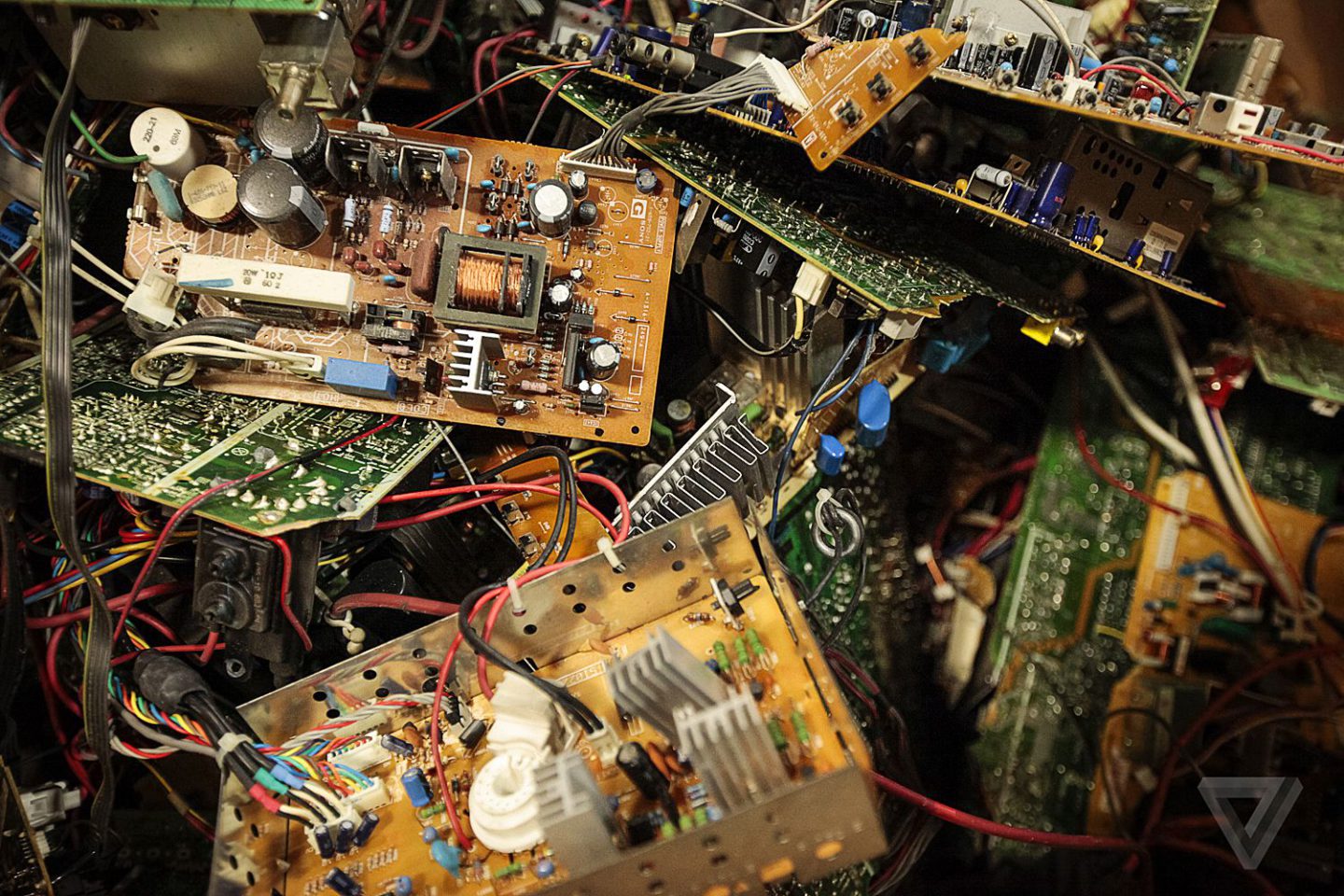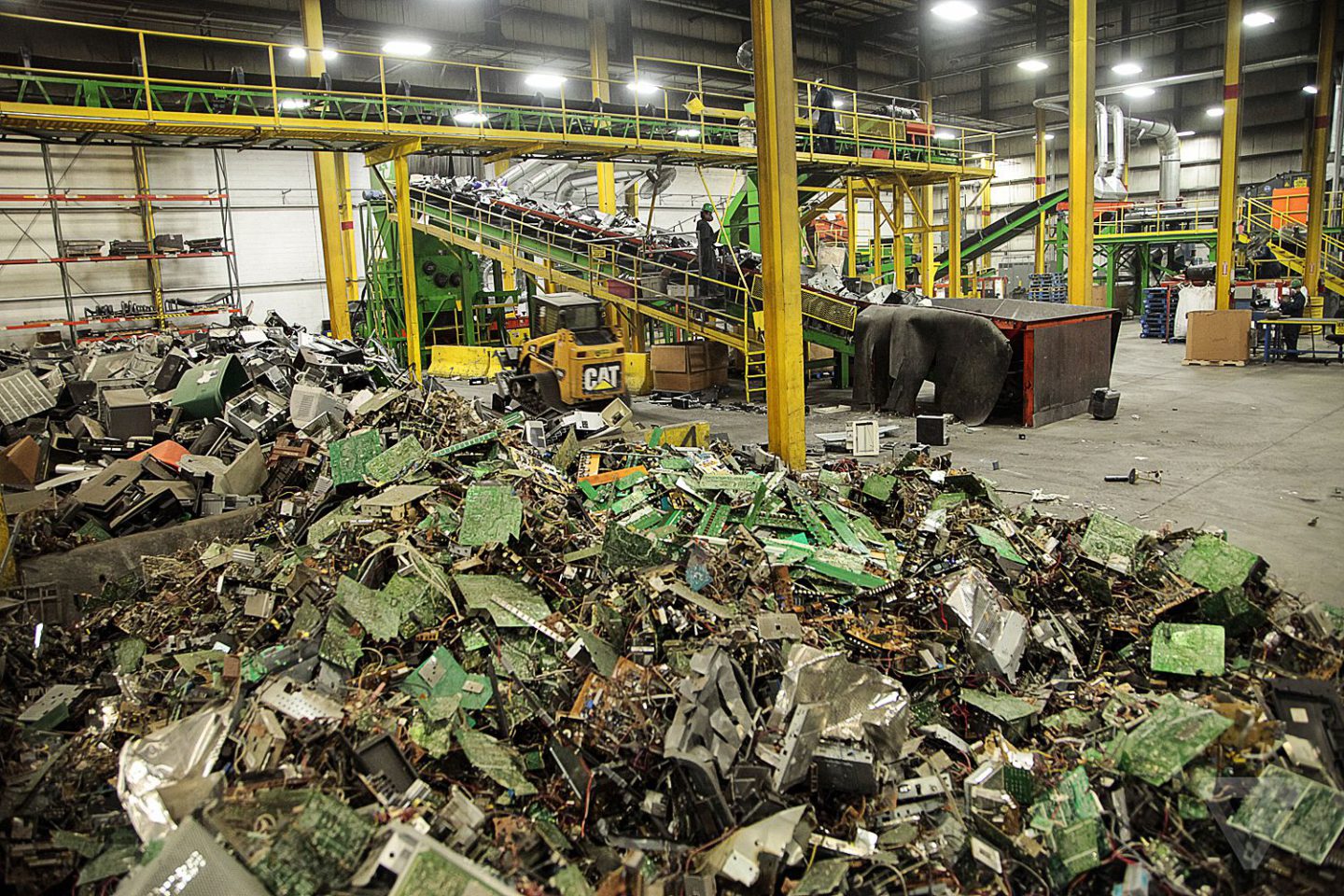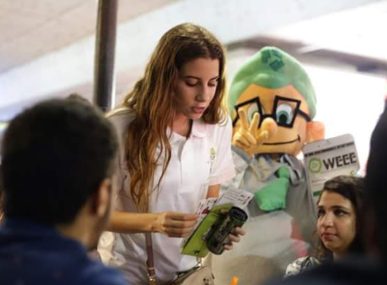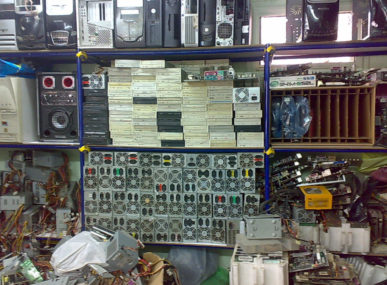Meet Palestine’s burners: residents who disassemble and treat e-waste not in factories, but by burning it near their homes and public water sources. A study published in 2013 found that in the last decade alone there were more than 600 burn sites active in the Hebron Governorate. Hallack is the chemical engineer whose business, Ecotech Recycling, looks at this as an environmental nightmare — but also as a social business opportunity.
Electronic waste in Palestine:
E-waste is a problem in Palestine, but it is also an industry. In Hebron, an estimated 80% of the population rely on the e-waste sector for their household income. “What they are doing is very low-tech,” Hallack says. “People resort to burning the electronics to extract copper from the wires. This is done on a huge scale.”
Hebron is a hotspot for e-waste burning because of its proximity to Israel. “The dealers in Hebron buy electronic scraps from Israel, burn it in Hebron, and then return the clean metal to Israel,” Hallack says of the informal industry. “The Israeli government is trying to stop this, but Dr. Yaakov Garb convinced the government to help instead of ending the trade altogether.”
As an environmental scientist at Ben-Gurion University of the Negev, Garb has spent years researching the trade of e-waste between Israel and Palestine, and was the author of the 2013 study referenced earlier. Garb and his team are currently supporting several projects similar to Ecotech Recycling, offering training, counseling, and the chance to network with international partners and experts. His own pilot project has received support from the Swedish government and, among other work, established an alert and response network that has led to a 40% reduction in burning.
E-waste in the circular economy:
While e-waste processing happens in ways that are harmful to the environment, Hallack says the financial livelihoods of burners must be considered if Ecotech Recycling wants to make a sustainable, long-term shift. “People know they are contaminating the land and they want to stop, but they don’t because there is no alternative,” Hallack explains. “With our experience and our knowledge we will help the people who are doing the burning in a way that they can still earn money.”
Ecotech Recycling’s solution still involves the extraction of precious metals from e-waste — but it does so without burning the components. The process has different stages, the first being the disassembly and sorting of components. From there, a specialized machine heats the components containing precious metals, concentrating each into a mineral-rich liquid which Hallack plans to sell to refineries in Europe.
